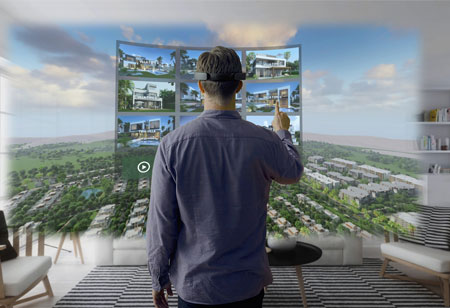THANK YOU FOR SUBSCRIBING
What are the Pros and Cons of Virtual Reality in the Real Estate Industry
The first advantage of virtual reality is that it helps real estate professionals to accurately envision or comprehend a project before it is built. Brokers may use the technology to display spaces with expected or contemplated movements.

By
Apac CIOOutlook | Wednesday, March 17, 2021
Stay ahead of the industry with exclusive feature stories on the top companies, expert insights and the latest news delivered straight to your inbox. Subscribe today.
The first advantage of virtual reality is that it helps real estate professionals to accurately envision or comprehend a project before it is built. Brokers may use the technology to display spaces with expected or contemplated movements.
Fremont, CA: Virtual reality (VR) is only now becoming a viable networking and marketing tool in the real estate industry. Digital reality and augmented reality technologies are attracting increasing amounts of investment because they have the potential to have a huge effect on the real estate industry. Both potential customers and developers will benefit from virtual tours and virtual staging technologies. As a result, real estate professionals who want to remain ahead of the curve should consider launching a virtual reality experience.
Pros and Cons of Virtual Reality in Real Estate
The first advantage of VR is that it helps real estate professionals to accurately envision or comprehend a project before it is built. Brokers may use the technology to display spaces with expected or contemplated movements.
Second, Augmented Reality (AR) technology reduces the amount of time spent on tasks. The quest and analysis of a property can be achieved much more quickly with virtual tours and virtual stagings. Buyers and tenants would no longer need to visit the actual location of a property to get a feel for it.
Third, virtual reality technology reduces the amount of time and money spent on project marketing. When these considerations are taken together, VR has the ability to save landlords and other real estate investors a large amount of money.
During the development stage, virtual reality technology will improve operational performance, simulate on-the-job training, and improve construction workers' precision and accuracy by allowing them to see a visual representation of the final project plan at all times.
Despite these benefits, widespread acceptance is still lagging due to difficulties in understanding the technology's complexity. Despite the fact that a VR headset provides the most practical experience, the device has yet to achieve widespread acceptance. Furthermore, people can be hesitant to share headwear due to contamination concerns.
See also:





